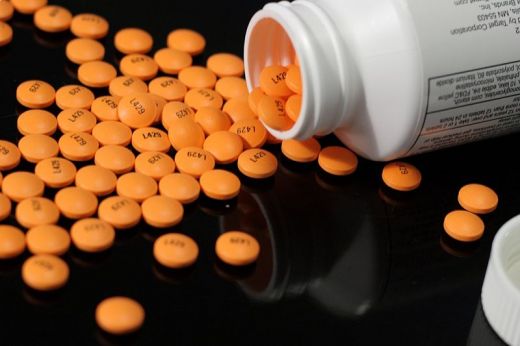Chemists in Switzerland report on the most up-to-date findings of the chemical space review - the chemical world where the wonder drugs of the future may be discovered

Just as astronomers count the celestial bodies in the known space of outer space, so chemists in Switzerland report on the most updated findings of the review of the chemical space - the chemical world where the wonder drugs of the future may be discovered. The researchers conclude, according to the last stage of this stock, that there are about nine hundred and seventy million chemicals suitable for medicinal research.
The study presents the most extensive publicly accessible repository of theoretical studies ever published, the researchers note.
The researchers, Jean-Louis Reymond and Lorenz Blum, explain that the laws of chemical bonding allow basic elements such as carbon, hydrogen, oxygen, nitrogen and fluorine to form millions of different compounds between them. This database, known as the "chemical universe", or the "chemical space", has a great ability to be used as a basis for the discovery of drugs, especially of small molecules - those consisting of only ten to fifty atoms. Most medicines today consist of such small particles. However, to date, scientists have not attempted to comprehensively examine the mules that inhabit this space.
In the article, the researchers describe the development of a state-of-the-art search database called GDB-13, which scientists can use in their search for new drugs. The database includes all compounds containing up to thirteen atoms of carbon, nitrogen, oxygen, sulfur and chlorine, in accordance with scientific principles that define the chemical stability and the likelihood of synthetic preparation of these compounds.
The researchers identified more than nine hundred and seventy million possible chemical structures, most of which have never been prepared in laboratories in the world. Some of these studies could lead to the design, development and production of new drugs, the researchers explain.

6 תגובות
Hanan:
Would you focus on that?
And what prevents you from focusing on it?
Is this the occupation of speakers?
And what about the millions of dormant bank accounts that are in Switzerland and have not yet been returned to the heirs of their Jewish owners? I would focus on this question before philosophical theories about the millions and billions of "somethings" that we have yet to discover...
Question - Shouldn't it also be useful to produce a machine that will test and create all the above-mentioned compounds and classify them according to their properties? Could it be possible to do this only by a computer without actually mixing the materials?
In my humble opinion, it can help to find new compounds and use them before they have been "discovered".
To Yossi - the title is taken from the original article.
The title of the article is misleading and populist. Not suitable for a serious site. After all, the intention was that there are a large number of chemical combinations that have not yet been tried in the laboratory. It is possible that none of them will turn out to be a cure and it is even possible that all of them will turn out to be types of poison. Please be precise
Descriptive